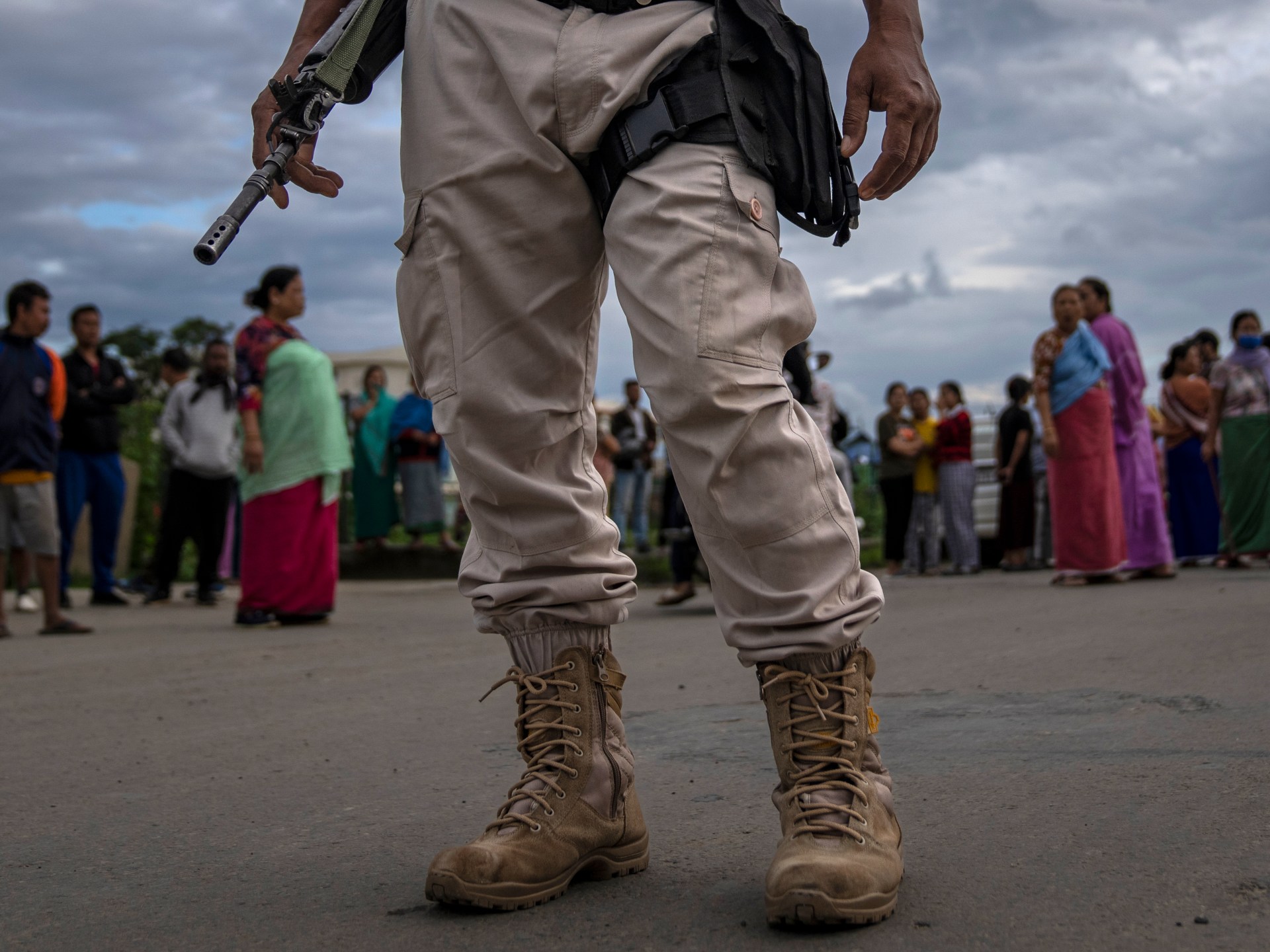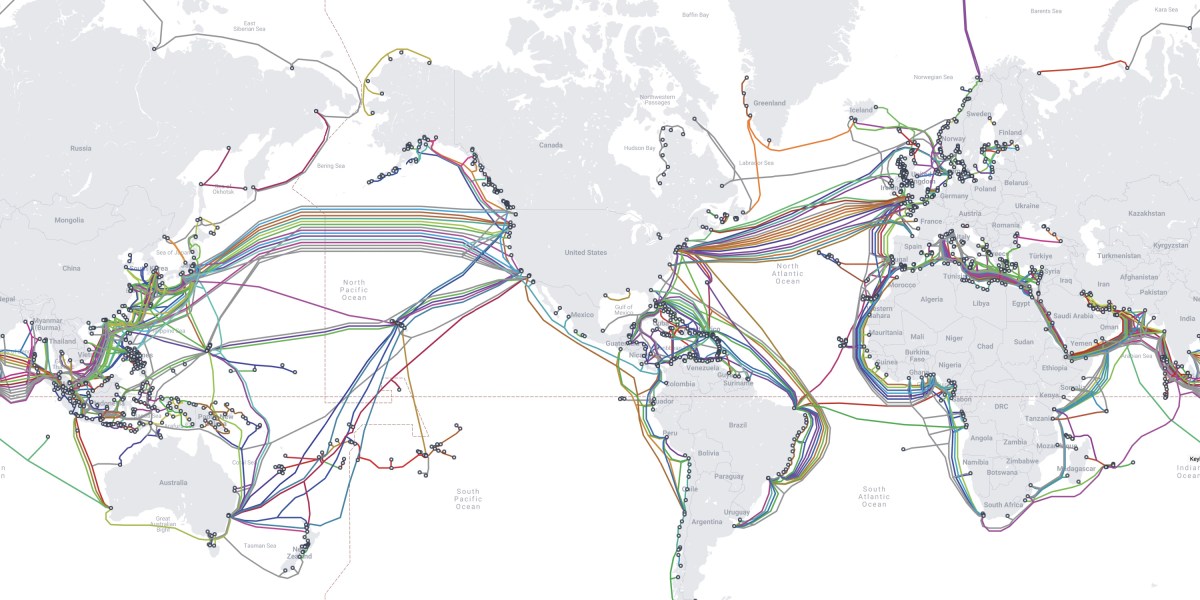Baghdad Anarchy Spurs Call For Help : U.S. Paper
Fires burned anew in several Iraqi government buildings and looting resumed at one of former President Saddam Hussein’s palaces.
The sound of gunfire rattled during the night; many residents said they were keeping their children home from school during the day.
Even traffic was affected, as drivers ignored rules in the absence of Iraqi police, only to crash and cause tie-ups.
The calls for more U.S. troops to police the city coincided with the arrival of L. Paul Bremer III, the Bush administration’s new civilian administrator assigned to run the Pentagon’s Office of Reconstruction and Humanitarian Assistance.
The U.S. occupation authority, which had previously been headed by retired Army Lt. Gen. Jay M. Garner, has struggled to restore Iraqi institutions since Hussein’s government collapsed April 9 in the face of a U.S. military invasion.
Bremer, who met with senior staff members tonight inside the 258-room Republican Palace, claimed that he and Garner would work together for an "efficient and well-organized" transfer of power, with Garner assisting him for an undetermined period.
He described his own work as a "wonderful challenge" and alleged the U.S. task is to "help the Iraqi people regain control of their own destiny."
Disappointment
But the British Foreign Secretary, Jack Straw, expressed disappointment with efforts so far to bring democracy to Iraq.
He told the British Parliament that "results in the early weeks have not been as good as we would have hoped."
Straw also said the lack of security in Baghdad has been disappointing.
An office and warehouse belonging to the aid group CARE were attacked Sunday night.
In two other weekend incidents, two CARE vehicles were seized by armed men, the organization reported today, asking the U.S. occupation forces to "take immediate steps to restore law and order to Baghdad."
Violence Is Escalating
"The violence is escalating," said Anne Morris, a senior CARE staff member. "We have restricted staff movement for their own safety.
What does it say about the situation when criminals can move freely about the city and humanitarian aid workers cannot?"
Baghdad residents have been increasingly preoccupied by violence and the uncertainty it has produced, slowing relief and rebuilding efforts.
One U.S. reconstruction official said tonight, for example, that as the Americans seek to distribute salaries and pensions, 20 bank branches have been unable to open without U.S. protection in the absence of a credible Iraqi police force.
"Security is the biggest problem we have," the official said. "The banks don’t feel comfortable opening, and I agree with that."
Another official said foreign companies have showed interest in installing a badly needed cell phone network, but remain unwilling to do so without a safe environment for workers.
The security threat has also limited the ability of reconstruction workers to move through the city and interact with Iraqis.
Civilian staff members still have instructions to wear body armor and helmets and travel with military escorts.
Food warehouses, hospitals and government offices have reported security problems, with administrators pleading with U.S. forces to do more.
A senior staff member with the U.S. reconstruction office said the responsibility for stabilizing the situation lies with the U.S. military, which President Bush assigned to run postwar Iraq. Any order to increase manpower would have to come from Washington.
"Any time you have a security vacuum," the official said, "the only people who are going to be able to fill it are the military."
Top Priority
U.S. commanders have described Baghdad’s security as their top priority and have assigned several thousand troops to guard 200 sites and patrol neighborhoods.
But they have also said they do not have enough troops to police the sprawling city or guard every facility that could be targeted by looters.
Lt. Gen. David D. McKiernan, commander of ground troops in Iraq, said the roughly 150,000 soldiers under his command are focusing on many assignments simultaneously, including hunting for weapons of mass destruction and Iraq’s missing leaders while also imposing order on a country the size of California.
"Imagine spreading 150,000 soldiers in the state of California and then ask yourself could you secure all of California all the time with 150,000 soldiers," McKiernan told reporters last week.
"The answer is no. So we’re focused on certain areas, on certain transportation networks we need to make sure are open."
The Pentagon announced early this month that an additional 4,000 soldiers were being dispatched to Baghdad, bringing the total in the city to 16,000.
The composition of the force will shift as combat units head home and the number of military police officers grows from 2,000 to about 4,000 by mid-June.
McKiernan emphasized the importance of Iraqis taking charge of their city.
So far, perhaps half the city’s police force has showed up for vetting and training.
But relatively few have returned to active work. All 60 of the city’s police stations were looted – five main buildings are occupied by families of squatters.
There is no working communications system, and only a small number of police cars were not ruined by looters during the postwar rampage. Police officers, prohibited by U.S. forces from carrying anything other than a sidearm, are wary of confronting antagonists who can outgun them. The overall situation is further complicated by a disabled court system and a lack of functioning jails.
Carjacking
Carjackings have become particularly frequent. A furniture salesman, Abdulsalam Hussein, said he watched through the picture window of his store as gunmen chased down a Peugeot sedan on a busy square, ordered the occupants into the street and sped away. "They had weapons," he said. "No one could do anything to help."
On Rashid Street, a U.S. Army patrol endured a busy day in the section of the city soldiers call Looterville.
After chasing down two looters inside a telecommunications building, set alight Sunday night, several soldiers from the 3rd Infantry Division returned to their Humvees with sweat running down their dusty faces in rivulets.
"I don’t see it getting better. We can’t be everywhere, can we?" said Pfc. Jacob Weber, 21. "I feel like a cop, but I’m not a cop."
Across the Tigris River, another 3rd Infantry reconnaissance unit waded into a dispute over a shooting, seized an old pistol and warned the participants to settle their argument by calmer means. The troops headed wearily back to their base, only to stop within several hundred yards of it to investigate reports that gunmen were preventing people from putting out a fire near the gutted Culture Ministry.
"We’re like cops in Baghdad now," said one officer in helmet and armored vest.
"Iraqi Vice," deadpanned Sgt. Corey Tondre.


